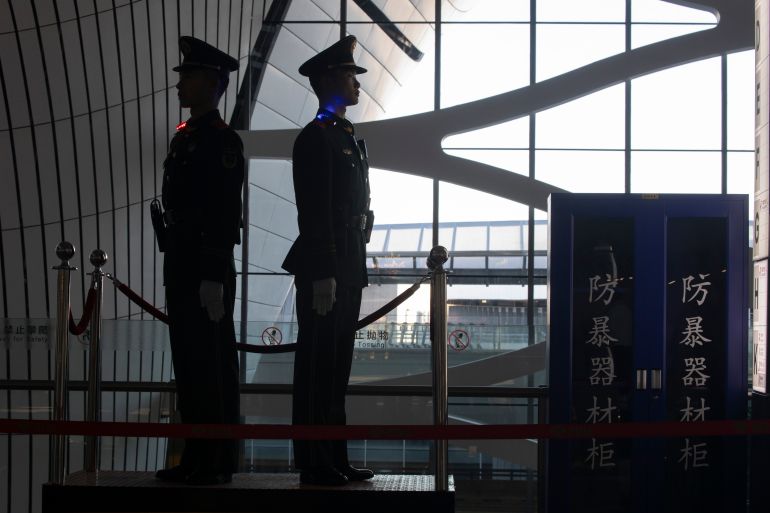China steps up use of ‘exit bans’ against government critics

At least 15 laws and legal instruments now cover exit bans with millions of people potentially affected.

China has stepped up the use of exit bans against human rights defenders and their families and expanded legislation authorising their use to anyone under investigation or anyone connected to an investigation, according to a new report.
Mentions of ‘exit ban’ on the Supreme People’s Court database rose from less than 5,000 in 2016 to 39,000 in 2020, rights group Safeguard Defenders said on Tuesday.
Only administrative, criminal and civil case-related exit bans appear on the court’s China Judgments Online database so the figure is probably an underestimation, the rights group added, noting that it can also take up to two years for data to be uploaded.
“Without official data on the number of exit bans, it is not possible to know how many people are placed under exit bans at any one time,” said the report, Trapped — China’s Expanding Use of Exit Bans. “Counting ethnicity-based exit bans, that number is in the millions. Other kinds of exit bans likely number in the tens of thousands if not more.”
Beijing has more recently expanded the scope for the use of exit bans after passing four new laws between 2018 and 2022, the report said. One of the new laws — the Supervision Law — allows exit bans to be placed on anyone under investigation and anyone connected to an investigation, even if they are not a suspect. The just-passed counterespionage law, due to come into force on July 1, also allows exit bans against anyone under investigation.
Including that legislation, China now has at least 15 laws and dozens of regulations, legal interpretations and documents covering exit bans.
“Since Xi Jinping took power in 2012, China has expanded the legal landscape for exit bans and increasingly used them, sometimes outside legal justification, on everyone from activists to foreign journalists and for transnational repression and other coercive practices,” the report said.
Widening scope
Among those trapped by an exit ban was Chinese human rights lawyer Tang Jitian.
Tang learned that he was barred from leaving the country on June 2, 2021, as he tried to fly to Japan from Fuzhou to see his daughter, who was in a coma.
When he handed over his passport, the official told him that Beijing police had barred him from leaving the country on national security grounds.
“Tang wasn’t a suspect in a criminal case, nor was he a party to any ongoing judicial proceedings,” Safeguard Defenders said. “He was just a human rights lawyer desperate to see his sick daughter.”
Beijing was mostly using the bans to “silence activists, pressure family members to return to China to face investigation, intimidate foreign journalists, as a tool of hostage diplomacy [and] to control ethnic-religious groups,” the report said.
While such bans have been used against Chinese citizens for decades — their use was documented against family members of Tiananmen Square protesters who fled China after the 1989 crackdown — Safeguard Defenders said there was increasing evidence that they were being deployed against foreigners.
It noted that Chinese law allows a wide range of people to be placed under exit bans if involved in a civil business dispute, including “legal representatives, persons in charge, and persons subject to direct liability for affecting the performance of debts”, and that proceedings can drag on for years.
Exit bans linked to civil disputes were likely to make up the largest of the total number of exit bans, the report said.
Safeguard Defenders highlighted the case of Irish executive Richard O’Halloran who was prevented from leaving China for nearly three years between 2019 and 2022 because of a civil business dispute, which took place before he began working for the company, China International Aviation Leasing Service, and which he had hoped to resolve by travelling to China.
“He was prevented from leaving China until January 2022 when a deal was finally struck for the company to make payments to the Chinese investors,” the report said.
A 2022 study by Chris Carr and Jack Wroldsen from the California Polytechnic State University found that at least 41 foreign businesspeople had been subjected to exit bans in China because of civil business disputes between 1995 and 2019.
While that time period is long, the researchers said the numbers were probably a significant underestimation because of the difficulties in finding reliable data.







